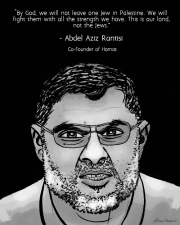
An unofficial proposal by four U.S. senators from the Republican Party to put a ballistic missile defense (BMD) radar system in Georgia has drawn praise from Tbilisi and criticism from Moscow. U.S. President Barack Obama’s administration is currently taking a delicate approach to BMD talk, attempting to placate its Central European allies with nonspecific promises that do not upset Russia while it winds down its wars in the Middle East. However, the administration could be forced to change its tone if Republicans make BMD an issue ahead of the 2012 presidential election.
Georgian Deputy Foreign Minister David Dzhalagania said Feb. 7 that Tbilisi is interested in hosting a U.S. ballistic missile defense (BMD) radar system. The statement was made in response to an unofficial proposal from four U.S. senators from the Republican Party — Jon Kyl, James Risch, Mark Kirk and James Inhofe — in a Feb. 3 open letter to U.S. Defense Secretary Robert Gates. Russia quickly responded, despite the proposal’s not being official and there being no indication that it will be adopted. While not specifically mentioning the senators’ letter or the Georgian interest in a role in U.S. BMD, Russian Deputy Defense Minister Anatoly Antonov said U.S. BMD deployment would have negative consequences for Russian nuclear deterrence, and Russian Deputy Foreign Minister Sergei Ryabkov reaffirmed the argument, adding that Moscow would have to reconsider its obligations under the recently signed New START treaty.
The senators’ proposal, the quick Georgian acceptance and the even quicker Russian response indicate that the BMD issue is still a source of considerable contention between Washington and Moscow. Underneath the back-and-forth over BMD configurations is a fundamental geopolitical contest between Russia and the United States for the post-Cold War security architecture of Europe. It is also a useful tool with which U.S. Republicans can put political pressure on U.S. President Barack Obama’s administration as the 2012 presidential election cycle begins; four U.S. senators cannot decide the placement of strategic military installations, but by issuing the letter, they have inserted the issue into the political conversation.
The senators’ proposal took issue with a suggestion by the Turkish government that it would only host U.S. BMD radar on its territory if it had assurances the radar data would not be shared with Israel, where the U.S. already has a mobile, X-band BMD radar in position. Since it will be a long time before a final decision is made on the deployment — and longer still before the radar is actually deployed — these discussions are more about positioning and shaping perceptions than they are representative of any final, specific agreement. But the senators’ letter took the opportunity to suggest that Georgia be considered as an alternative site for the radar’s installation.
U.S. International Goals
This comes at a time when the United States is trying to balance its reset in relations with Russia against its policy of extending security commitments to Central European allies. Washington has tried to accomplish the former by negotiating the New START with Russia and offering Moscow help with its modernization efforts and the latter by offering its Central European allies a role in a revamped BMD project that will see U.S. installations spread in Europe from Poland to Turkey.
For Washington, the senators’ letter comes at a contentious time, with Moscow renewing its objections to the BMD system, saying it targets Russia’s nuclear deterrence capabilities. Moscow has used the BMD issue to push for greater collaboration with NATO: At the behest of Germany and France, Russia was included in the organization’s new Strategic Concept as a “strategic partner” — to the chagrin of Central Europe — and has used the term to launch its push for a joint NATO-Russian BMD system. The United States has countered by proposing that Russia develop its own BMD plan and then collaborate with the NATO plan.
Both sides are playing a much larger and more consequential game. Russia wants to use its potential role in European BMD to formally insert itself in the European security architecture, cementing its current strong political and economic relationship with Germany and France with a security treaty. The United States and its Central European allies, such as Poland and the Baltic states, on the other hand, want to use the BMD to formally bring U.S. influence into the Central European strategic theater. Russia’s proposal for a joint BMD system — as well as its proposal for an alternative European Security Treaty — stems from its desire to prevent such U.S. entrenchment.
The United States understands that these Russian proposals are not being ignored in Western Europe. In fact, German Chancellor Angela Merkel and French President Nicolas Sarkozy invited Russian President Dmitri Medvedev to their Deauville Summit in October 2010 to discuss European security issues. At their Feb. 7 Weimar Triangle meeting, Merkel and Sarkozy discussed with Polish counterpart Bronislaw Komorowski the idea of including Medvedev in future agreements. For Germany and France, having guarantees that Russia will not seek to redraw the borders of its sphere of influence is important, even at the expense of Central Europe’s security comfort — Berlin and Paris do not want to see a U.S.-Russian standoff along the Pinsk Marshes and the Carpathian Mountains.
However, the Obama administration thought it had more time to address French and German concerns. The Russian opposition to its BMD plans is an intractable issue for which the U.S. executive currently sees no solution. Washington is embroiled in two wars in the Middle East and wants to continue pressuring Iran. It needs Russia on both — pressure on Iran via U.N. sanctions and help with supply routes to Afghanistan that avoid unstable Pakistan. Thus, the United States is attempting to placate its Central European allies with nonspecific promises while it resolves its Middle East involvement, something made tactically possible by using sea-based Aegis/Standard Missile-3 (SM-3) systems as both the initial sensor and the initial interceptor deployment for the European BMD system. Land-based variants of the Aegis/SM-3 system are currently being developed and are not set to begin deployment until at least 2016.
U.S. Domestic Considerations
This plan becomes far less certain if the U.S. Republican Party decides to make the BMD system — and specifically Washington’s support for the Georgian government — a central piece of its foreign policy strategy ahead of the 2012 presidential election. Thus far, the Republicans have mainly concentrated on Obama’s domestic policy. However, with the economy potentially recovering before the 2012 elections, Republicans may be looking to broaden their political criticism — hence the senators’ Feb. 3 letter.
That said, the letter has no power in itself. The geopolitical significance of the unofficial proposal will depend on how far the Republican Party intends to pursue the issue in the coming year; the Iowa caucuses, the first electoral test in the U.S. presidential election, are scheduled for Feb. 6, 2012. If the pressure forces Obama to respond, the Russians could take notice. This is why STRATFOR considers this issue an important one in order to gauge the extent to which the interplay between domestic and foreign policy will determine U.S. relations with Russia going forward.
Read more: The Influence of U.S. Domestic Politics on BMD Negotiations | STRATFOR
















